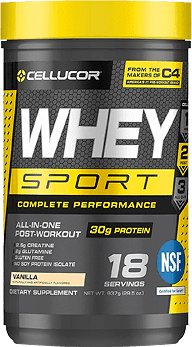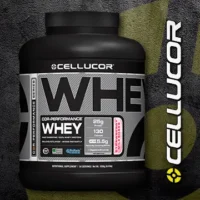Knowledge BaseYou're Questions Answered
Are protein powders and pre workout the same?
Protein powders and pre-workout supplements serve different purposes and are not the same. While both can be used to support fitness goals, they have distinct ingredients and effects. Here’s a comparison to help clarify their differences.
What Are Protein Powders?
Protein powders are dietary supplements designed to increase your protein intake. They come in various forms, such as whey, casein, soy, and pea protein, and are used primarily for muscle recovery, growth, and overall nutrition.
Benefits of Protein Powders
- Muscle Growth and Repair: Protein powders provide essential amino acids that support muscle protein synthesis, aiding in muscle recovery and growth1.
- Weight Management: The high protein content can increase satiety and help reduce overall calorie intake, supporting weight management goals2.
- Overall Nutrition: Protein powders can help meet daily protein needs, especially for those with higher protein requirements or dietary restrictions3.
What Are Pre-Workout Supplements?
Pre-workout supplements are designed to boost energy, focus, and endurance during workouts. They often contain stimulants like caffeine, amino acids, and other performance-enhancing ingredients.
Common Ingredients and Their Benefits
- Caffeine: A stimulant that increases alertness, focus, and exercise performance4.
- Beta-Alanine: An amino acid that helps reduce muscle fatigue and improve endurance5.
- Creatine: Enhances strength and power output, particularly in high-intensity exercises6.
- Branched-Chain Amino Acids (BCAAs): Support muscle protein synthesis and reduce muscle soreness7.
- Nitric Oxide Boosters (e.g., Citrulline Malate): Improve blood flow to muscles, increasing exercise performance and reducing fatigue8.
Protein Powders vs. Pre-Workout Supplements
- Purpose:
- Protein Powders: Primarily for muscle recovery, growth, and nutrition.
- Pre-Workout Supplements: Enhance energy, focus, and endurance during workouts.
- Timing:
- Protein Powders: Commonly taken post-workout but can also be used pre-workout or as a meal supplement.
- Pre-Workout Supplements: Taken 20-30 minutes before exercise for optimal effects.
- Ingredients:
- Protein Powders: Mainly protein with varying amounts of carbohydrates, fats, vitamins, and minerals.
- Pre-Workout Supplements: Stimulants (caffeine), amino acids (BCAAs, beta-alanine), and performance-enhancing compounds (creatine, nitric oxide boosters).
While protein powders and pre-workout supplements are not the same, they can be used together to support your fitness goals. Protein powder aids in muscle recovery and growth, while pre-workout supplements enhance performance during exercise. Always consult with a healthcare provider or fitness professional to determine the right supplement regimen for your needs.
References:
- Phillips, S. M. (2014). A brief review of higher dietary protein diets in weight loss: a focus on athletes. Sports Medicine, 44(S1), S149-S153.
- Leidy, H. J., Clifton, P. M., Astrup, A., Wycherley, T. P., Westerterp-Plantenga, M. S., Luscombe-Marsh, N. D., ... & Mattes, R. D. (2015). The role of protein in weight loss and maintenance. The American Journal of Clinical Nutrition, 101(6), 1320S-1329S.
- Campbell, B., Kreider, R. B., Ziegenfuss, T., La Bounty, P., Roberts, M., Burke, D., ... & Antonio, J. (2007). International Society of Sports Nutrition position stand: protein and exercise. Journal of the International Society of Sports Nutrition, 4(1), 8.
- Ganio, M. S., Klau, J. F., Casa, D. J., Armstrong, L. E., & Maresh, C. M. (2009). Effect of caffeine on sport-specific endurance performance: a systematic review. Journal of Strength and Conditioning Research, 23(1), 315-324.
- Trexler, E. T., Smith-Ryan, A. E., & Stout, J. R. (2015). Effects of beta-alanine supplementation on performance and body composition in collegiate wrestlers and football players. Journal of Strength and Conditioning Research, 29(3), 816-825.
- Persky, A. M., & Brazeau, G. A. (2001). Clinical pharmacology of the dietary supplement creatine monohydrate. Pharmacological Reviews, 53(2), 161-176.
- Jäger, R., Kerksick, C. M., Campbell, B. I., Cribb, P. J., Wells, S. D., Skwiat, T. M., ... & Arent, S. M. (2017). International Society of Sports Nutrition position stand: protein and exercise. Journal of the International Society of Sports Nutrition, 14(1), 20.
- Arguin, H., & Rehrer, N. J. (2019). Citrulline malate supplementation increases aerobic but not anaerobic performance in healthy trained athletes. Journal of the International Society of Sports Nutrition, 16(1), 1.
Related Questions
Related Reviews
Protein vs Protein

Your Answer
We are a participant in the Amazon Services LLC Associates Program, an affiliate advertising program designed to provide a means for us to earn fees by linking to Amazon.com and affiliated sites.


